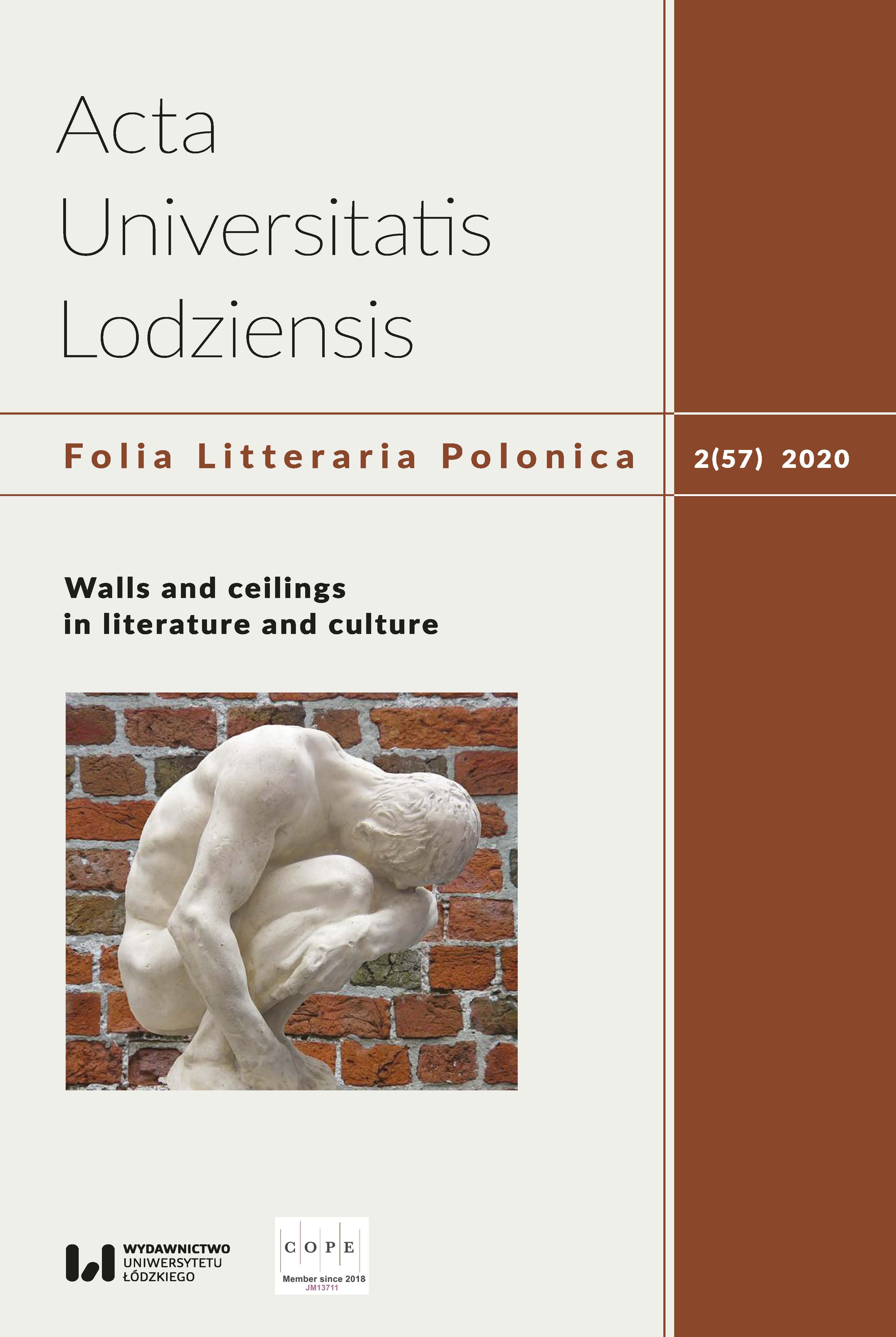The wall of silence surrounding literature and remembrance: Varlam Shalamov’s “Artificial Limbs”, Etc. as a metaphor of the soviet empire
DOI:
https://doi.org/10.18778/1505-9057.57.01Keywords:
literature, testimony, memory, forgetfulness, totalitarianism, GULAGAbstract
Literature of an autobiographical character acquires a special significance in the world of the bloody tragic events of the 20th century, i.e. the Holocaust, the Second World War, the realities of the Nazi and Soviet totalitarianisms, death camps, and forced labour. Those are the recollections of experienced trauma which shatters identity, and of existential experiences of a borderline nature, of which Shalamov, a witness to the epoch, felt an obligation to talk. An anthropological analysis of Varlam Shalamov’s short story titled Artificial Limbs, Etc. enables one to grasp the role of memory and autobiographical testimony as a kind of cultural and literary antidote to silence and memory distorted by the Soviet totalitarianism. The author of Kolyma Tales offered a faithful description of a world outside the‘human’ world, one which was almost impossible to describe due to its inherent moral void, level of violence, and fear of the authorities who made people forget about the crimes, victims, and oppressors.
Downloads
References
Applebaum Anne, Gułag, trans. Jakub Urbański, Świat Książki, Warsaw 2005.
Google Scholar
Courtois Stephane, Werth Nicolas, Panne Jean-Louis, et al., Czarna księga komunizmu. Zbrodnie, terror, prześladowania, trans. Krzysztof Walkar, Andrzej Nieuważny, et al., Prószyński i S-ka, Warsaw 1999.
Google Scholar
Figes Orlando, Szepty. Życie w stalinowskiej Rosji, trans. Władysław Jeżewski, Wydawnictwo Magnum, Warsaw 2008.
Google Scholar
Golka Marian, Pamięć społeczna i jej implanty, Wydawnictwo Naukowe Scholar, Warsaw 2009.
Google Scholar
Halbwachs Maurice, Społeczne ramy pamięci, trans. Marcin Król, Wydawnictwo Naukowe PWN, Warsaw 2008.
Google Scholar
Kępiński Marcin, Pomiędzy pamięcią autobiograficzną a zbiorową. Polska Ludowa i stan wojenny w narracjach łódzkich nauczycieli, Wydawnictwo Uniwersytetu Łódzkiego, Łódź 2016.
Google Scholar
Klimowicz Tadeusz, Przewodnik po współczesnej literaturze rosyjskiej i jej okolicach (1917–1996), Towarzystwo Przyjaciół Polonistyki Wrocławskiej, Wrocław 1996.
Google Scholar
Le Goff Jacques, Historia i pamięć, trans. Anna Gronowska, Joanna Stryjczyk, Wydawnictwa Uniwersytetu Warszawskiego, Warsaw 2007.
Google Scholar
DOI: https://doi.org/10.31338/uw.9788323526629
Miłosz Czesław, Zniewolony umysł, Wydawnictwo Literackie, Kraków 1999.
Google Scholar
Orwell George, Rok 1984, trans. Tomasz Mirkowicz, Państwowy Instytut Wydawniczy, Warsaw 1989.
Google Scholar
Ricoeur Paul, Pamięć, historia, zapomnienie, trans. Janusz Margański, Universitas, Kraków 2007.
Google Scholar
Saryusz-Wolska Magdalena, Traba Robert (eds.), Modi memorandi. Leksykon kultury pamięci, Wydawnictwo Naukowe Scholar, Warsaw 2015.
Google Scholar
Szałamow Warłam, Opowiadania kołymskie, vol. II, trans. Juliusz Baczyński, Wydawnictwo ATEXT, Gdańsk 1991.
Google Scholar
Szałamow Warłam, Wiszera. Antypowieść, trans. Juliusz Baczyński, Czytelnik, Warsaw 2000.
Google Scholar
Szkoła Dawid, “Zakładniczka historii”, [in:] Zmiany, metamorfozy, rewolucje, Małgorzata Czapiga, Katarzyna Konarska (eds.), Wydawnictwo Uniwersytetu Wrocławskiego, Wrocław 2018.
Google Scholar
Śpiewak Paweł, Pamięć po komunizmie, Wydawnictwo słowo/obraz terytoria, Gdańsk 2005.
Google Scholar
Wat Aleksander, Mój wiek. Pamiętnik mówiony. Rozmowy prowadził i wstępem opatrzył Czesław Miłosz, part 1, Czytelnik, Warsaw 1990.
Google Scholar
Downloads
Published
How to Cite
Issue
Section
License

This work is licensed under a Creative Commons Attribution-NonCommercial-NoDerivatives 4.0 International License.











